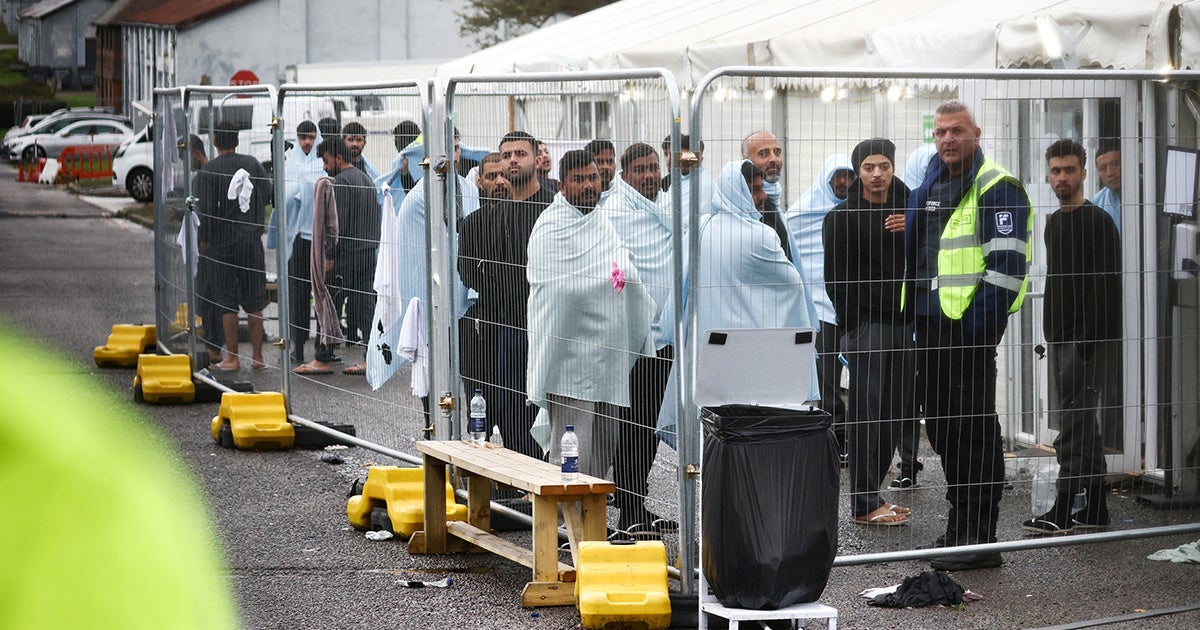Government to use biological age checks on child asylum seekers despite warnings they don’t work
Expert report commissioned by government said teeth and bone scans cannot prove someone is over 18

The government will press on with plans to use biological tests to check child asylum seekers’ ages despite an official report finding they cannot prove someone is over 18.
Ministers have not yet – which “scientific methods” will be used on people whose ages are disputed by officials but are considering X-rays and MRI scans of teeth and bones.
It comes after government documents said that child asylum seekers will be restrained if they “resist” forcible deportations to Rwanda and other countries, under plans in the new Illegal Migration Bill.
On Friday, the Home Office said statistics showed “the need for stronger measures to assess age” of those claiming asylum. Analysis of official figures by The Independent shows that 15 per cent of unaccompanied asylum seekers claiming to be children are found to be over 18.
Under a third of UASC applications (7,900) have gone through further checks after a dispute over age since 2016 and more than half of those people were found to be children after further investigation.
Robert Jenrick, the immigration minister, said: “It’s a sad fact that there have been cases of asylum-seeking adults pretending to be children to try and game the system, which presents a serious safeguarding risk.
“It is vital we use every tool at our disposal to weed out people falsely claiming to be children so we can prevent abuse of our services and protect children in the UK.
“That is why we are introducing the National Age Assessment Board to set the national standard and ensure assessments are as robust as possible, alongside our commitment to deliver scientific methods to assess age as soon as possible.”
In plans first proposed by Priti Patel last year and now backed by her successor Suella Braverman, the government has been looking at different options.
An advisory report commissioned by the government warned that asylum seekers may be traumatised and must give “informed consent” to such procedures, but concluded: “There is no method, biological or social worker-led, that can predict age with precision.
“Biological assessment of age should consider whether the age claimed by the UASC [unaccompanied child asylum seeker] is ‘possible’ rather than be used to answer the specific question of how old that person is or whether they are under or over 18.”
The report, published in January, concluded that the current interview process should still be the main evaluation method, with biological tests “only performed in cases where the claimed age remains in doubt or there is conflicting or insufficient evidence”.

It showed that various options, including X-rays and MRI scans of different teeth and bones, produced clashing results when applied to the same person – with some results saying their claimed age was possible and others indicating the opposite.
“Any methodology used for the assessment of age should respect and prioritise the health and wellbeing of the individual, upholding their dignity and right to choose, and minimising any health risk, whether physical or psychological, to the individual being assessed,” experts warned.
The report suggested that the government will not be able to force asylum seekers to undergo biological assessments, and cannot make “automatic assumptions” that they are an adult if they refuse.
The new National Age Assessment Board launched on Friday brings together specialist social workers, who will support local authorities and the Home Office to resolve age disputes using written evidence and interviews.
The Refugee Council said it was “seriously concerned” about the government’s approach, and the independence of the social workers being employed on the board.
Senior policy analyst Kama Petruczenko said: “The approach does nothing to address the very real risk of putting refugee children through dangerous and unsuitable adult processes and accommodation.
“We need to see a stronger commitment from the Home Office to safeguard vulnerable children who are too often wrongly seen as adults.
“We support many children in the asylum system who are disbelieved about their age. They simply want to start rebuilding their lives after the traumatic experiences they have been through.”
The board will set standards for age assessments and provide advice and training, beginning in London and the West Midlands before expanding nationally.
“This will ultimately help to prevent asylum-seeking adults posing as children as a way of accessing support they are not entitled to,” a Home Office spokesperson said.
“It will also help remove the safeguarding risks of adults being wrongly assessed and placed in the children’s care system.
“Serious cases have seen adults being sent to children’s schools, or children being treated as adults, in both cases putting children at risk of harm.”
Join our commenting forum
Join thought-provoking conversations, follow other Independent readers and see their replies
Comments


Bookmark popover
Removed from bookmarks